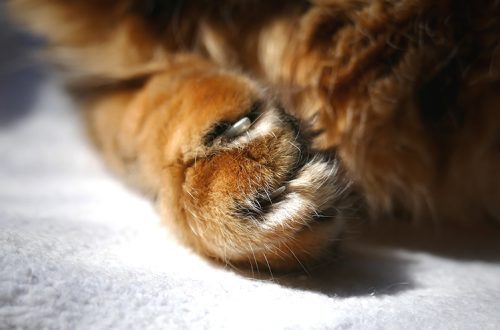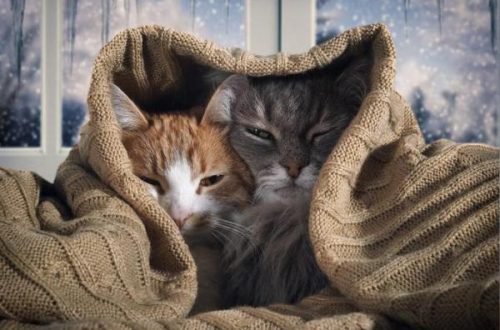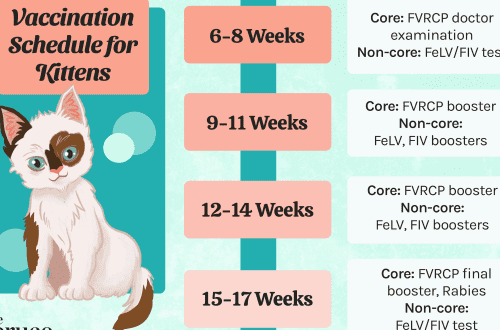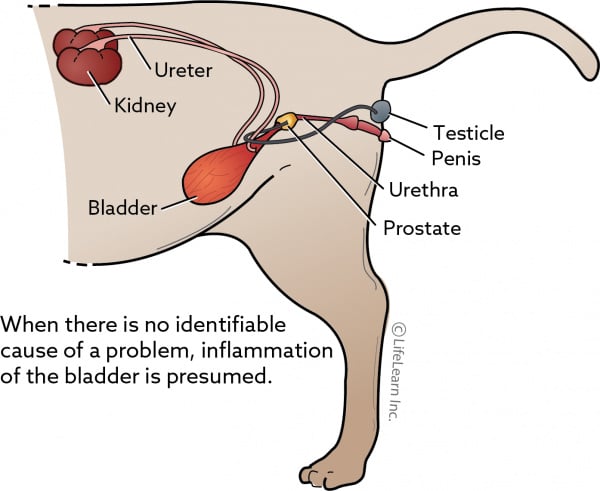
Feline idiopathic cystitis: symptoms and treatment
If your cat is having trouble using the litter box – she is straining to urinate, going to the toilet outside the litter box, or has blood in her urine – she may have a bladder infection. Fortunately, these infections are rare in cats, and it is more likely that a condition called feline idiopathic cystitis (FIC) is a possible cause of toilet problems.
FIC can be a serious problem, but don’t worry. As a rule, special care and food for idiopathic cystitis in cats is all that is needed to help the animal recover.
Contents
Idiopathic cystitis in cats: what is it
FIC causes inflammation of the bladder in the absence of infectious agents. This condition resembles human interstitial cystitis, which is also called painful bladder syndrome. In fact, FIC originates in the nervous system, not in the bladder.
In cats with FCI, the nervous system is sensitized, meaning it overreacts to stress. The state and chemical composition of their brains differ from the state and composition of the brains of healthy cats, as a result of which they feel pain more. Cats with FCI live in a state of increased excitability, which leads to the development of this condition.
In addition to unique neurological features, some cats with FIC have an abnormal bladder mucosal condition. It allows toxic substances to irritate the bladder, causing pain.
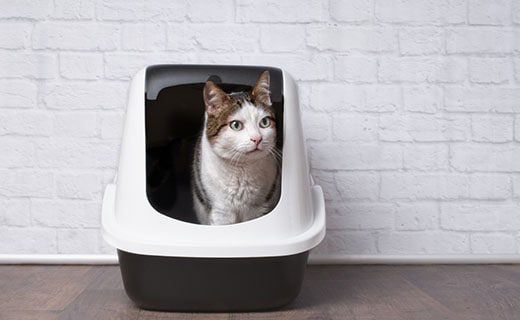
Risk Factors for Idiopathic Cystitis in Cats
Since stress is a contributing factor to the development of FCI, it is important to understand what is the root cause of stress. This is necessary to provide the cat with the necessary assistance.
Overweight cats who do not go outside or have a nervous temperament are at higher risk of FCI. Such pets are often deprived of the opportunity to realize their hunting instincts, and this is what usually allows them to relieve stress. Other risk factors include:
- Insufficient fluid intake;
- living in a house with several aggressive cats;
- pain from other medical conditions, such as arthritis or skin problems
- the need to share food, water, a litter box or a place to rest with other pets;
- placing the bowl and water near disturbing factors, such as near places where people constantly walk.
- Cats susceptible to FCI may experience outbreaks in response to environmental changes. For example, this may be a reaction to rearranging furniture, the appearance of a new pet in the house, repairs or guests.
Idiopathic cystitis in cats: symptoms
Signs of FCI come and go depending on how stressed the cat is. Among the most common signs are the following:
- voltage when using the tray;
- vocalization during urination;
- frequent trips to the tray with a small amount of urine;
- urination past the tray;
- blood in the urine.
- Other signs not directly related to the lower urinary tract, such as vomiting, hiding, or refusal to eat, may also be associated with FCI.
Idiopathic cystitis in cats: treatment
A veterinarian can diagnose FCI by performing a physical examination, urinalysis, urine cultures, and blood cultures. He will also ask about any changes the cat has had and any past urinary problems. FIC is also diagnosed by the cat’s response to treatment.
FIC is a condition that goes away on its own. In this case, the treatment prescribed by a veterinarian for idiopathic cystitis in cats may include painkillers. Pets with chronic or recurrent FIC may benefit from amitriptyline. In addition to eliminating discomfort, getting rid of FCI requires addressing its root cause, that is, stress. The good news is that stress can be managed.
One useful approach to stress management in cats is MEMO, or multimodal environmental change. MEMO involves a comprehensive approach to assessing the cat’s habitat and identifying all the factors that can cause her stress. After identifying them, you can change the cat’s habitat by eliminating harmful factors.
How to Treat Idiopathic Cystitis in Cats with Nutrition
Proper nutrition is an important part of maintaining the health of cats with FCI. Medicated foods specifically formulated to treat urinary problems have been shown to reduce the incidence of the disease. Your veterinarian may recommend a medicated cat food to help address the underlying causes of FCI, including stress, weight gain, or bladder problems.
Cats with FCI should also drink enough water. If possible, they should eat not only dry, but also wet food to increase their fluid intake. If your pet doesn’t like canned food, you can moisten dry food with water, tuna juice, or low-sodium chicken broth. You can put a fountain in the cat or add tuna broth or juice to the water for taste.
Helping a cat with FCI cope with stress, including creating a comfortable environment for her, can help her live a long, happy, and healthy life.
See also:
Stress and urinary problems in cats
Diseases and infections of the urinary tract in cats
What you need to know about Feline Lower Urinary Tract Disease (FLUTD¹)



